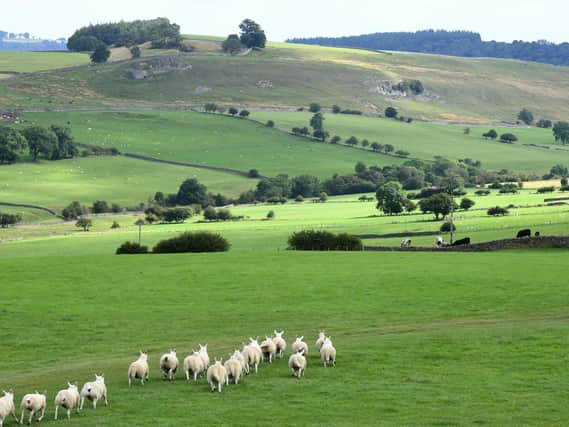Government should be levelling-up in rural areas - Yarm parish priest Neil McNicholas


On the other hand we don’t seem to hear quite so much about “levelling down” which, as far as I can gather, involves reducing differences by making those who are better off less so while at the same time ensuring nobody is made better off. I’ll just pause while you try to make sense of that last sentence…
The existence of a so-called “North-South divide” in this country cannot be denied. It seems to reflect the shape of the country: thinner in the North and fatter in the South. OK, so if you add the population of the north of England (15 million) to that of the Midlands (10 million), the total is still 3 million shy of that of the South (28 million), but as everyone knows it’s a matter of quality rather than quantity!
Advertisement
Hide AdAdvertisement
Hide AdHowever, statistics of that sort can never justify treating certain areas of the country more favourably than others – we are all citizens together, we are taxed together, so surely we should be the beneficiaries of equitable government investment and development, otherwise we have echoes of George Orwell’s Animal Farm where all animals are equal but some are more equal than others – or at least in this case are treated as if they are.
On the other hand this is England and I am not convinced that everyone wants to be treated as equals. We revel in our class distinctions.
Cue the famous Frost Report taking a satirical look at our sense of class superiority or inferiority as the three characters (played by John Cleese, Ronnie Barker and Ronnie Corbett) look up to, or down on, each other. Each knows his place.
I’m also reminded of Channel 5’s Rich House, Poor House programme (which I’ve never actually watched) in which families at opposite ends of the economic spectrum swap homes for a week to experience “how the other half lives”. It’s basically nothing more than cultural voyeurism – we already know how the other half lives thank you, but no thank you.
Advertisement
Hide AdAdvertisement
Hide AdQuite apart from the “North-South divide”, the Government’s levelling-up agenda is aimed at a perceived “urban-rural divide”.
It might be presumed that most people who live in our towns and cities do so out of necessity – principally for reasons of employment, education options, and their social life – but in many cases also because that’s where family members live.
People who live in the country do so, I would imagine, largely by choice because in doing so they must surely be aware that their choices (for schools, shops, entertainment, and various other services) are necessarily going to be limited, but they make that choice anyway. For farming families, of course, that is their way of life and they should be constantly supported for what they do for the country.
Do people who live in urban areas want to live at the same standard as those in the country? Possibly yes because of the perceived “rural idyll” of a happier, healthier lifestyle.
Advertisement
Hide AdAdvertisement
Hide AdFor that very reason it is probably less likely that those who are living in the country would exchange it for life in an urban setting, however they may very well wish they had the convenience of all the various services that urban dwellers often take for granted.
How far is it to the nearest town for food shopping and other necessities?
For a family with children, how far is it to the nearest school? For those who may no longer drive, how reliable and frequent is a bus service if one is even available?
If they want to take a break, how far is it to the nearest station or airport? Where is the nearest doctor or, in an emergency, how far is it to the nearest hospital? And in an age where digital communication is so essential, how reliable is the local wifi signal?
Advertisement
Hide AdAdvertisement
Hide AdThese are the areas in which levelling-up might be assumed to be very important to the quality of life of those living in the country and are the areas, therefore, with which government needs to concern itself.
When it comes to government policy we should all be given equal consideration so that none are treated more equally than others.
Neil McNicholas is a parish priest in Yarm.
Support The Yorkshire Post and become a subscriber today. Your subscription will help us to continue to bring quality news to the people of Yorkshire. In return, you'll see fewer ads on site, get free access to our app and receive exclusive members-only offers. Click here to subscribe.